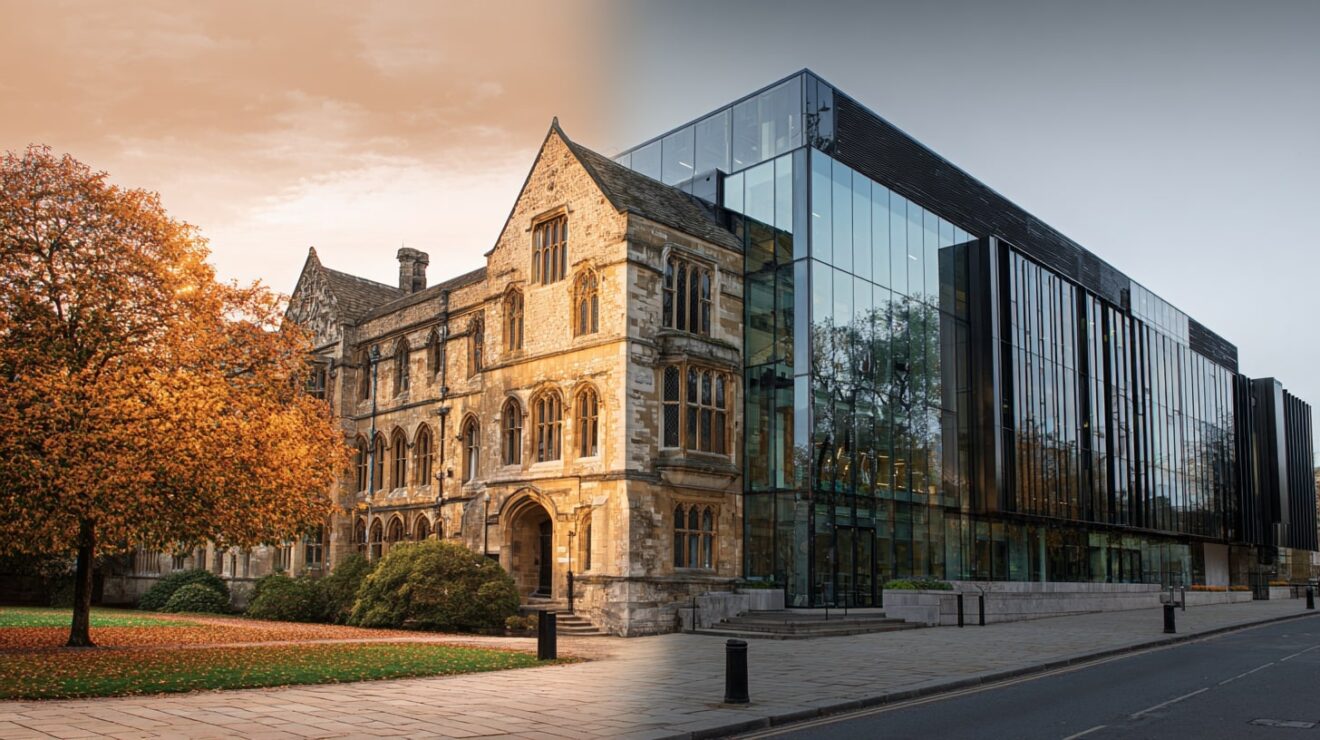Meeting with decision makers can often be challenging. We speak to officers who recount that definitive feeling of a power imbalance which can seem insurmountable.
This is a common feeling, whether you’re an SU officer, charity CEO, faith leader – these sorts of dynamics play out across our communities all the time.
So how do we flip the script, change the dynamic and guarantee students a real seat at the table? And is there a way we can do this that brings more students into the conversation, rather than this being the sole purview of our elected officers?
It’s about power
The first question we need to unpack is power itself.
What is it? Is there a way we can build it ourselves?
Power, by definition, is “the ability to act.” It can be used for good, but many of us will have experiences of being at the sharp end of power or seeing its abuse.
We’re often familiar with dominant power. We see it in the news every day, but there is another kind of power that we call “relational power.”
This “power with” is created through the relationships we build together, it’s the stuff that social movements are made of. In community organising we lay out the need for power in quite stark terms, the Ancient Greek historian Thucydides in his Melian Dialogue says “you get as much justice as you have the power to compel.”
This is quite abrasive framing, but it’s clear that the great justice movements that won the right to vote, civil rights, rights in workplaces- all build strong bases of relational power together to win.
At Citizens UK, we have used this way of thinking to build the Living Wage Foundation, which has ensured nearly half a million workers get a fair wage, and many more local and national wins.
Each students’ union has thousands of members – the real question is how we turn some of that base into organised power that can win change.
Who’s in charge?
Another dynamic we need to understand is leadership. In students’ unions, political work is often for elected officers, but we think that to stop there would be to miss a trick.
Every community is full of amazing potential leaders that we should be seeking out and nurturing. If the student movement is going to build power in the long term and on the scale that it needs to win – then there isn’t another choice!
SUs need to create spaces for new leaders to step into the fold and own the work. That’s easier said than done – it feels easier to give that work to an officer. However, to drive change on a bigger scale, it’s important to think differently.
Thankfully, we don’t need to start from scratch in thinking about how to do this, we can learn from the great social justice movements of the past and the tools they used. The American community organiser, Fred Ross, developed a tool called “house meetings” that helps to get this moving.
Getting our house in order
A house meeting is an approach to listening, focused on finding stories that bring issues to life, identifying leaders who can help drive the change and building solidarity between a group rooted in those issues.
You bring together a group, and everyone has a set amount of time to answer the same question, it might be “what is putting pressure on you and the people you care about?” or something like “tell us about how the buses are impacting you and people you know.”
Once everyone has answered, you can draw out commonalities, before the chair brings it to a close and tells people about next steps. These might be to invite them to join action teams focused on these issues or take part in a meeting with a decision maker. Organisers should be proactive about closing that feedback loop with those who had powerful stories or who brought people with them to the meeting.
At the University of Birmingham Guild of Students, we use house meetings as a first step for every student-led campaign.
There is plenty of research out there about the student housing market, its injustices and some potential solutions, but to focus solely on that would prevent us from gaining key insights into the local dynamics. Focusing on research can limit your ability to drive the change you want and achieve the results you need. Being “right” isn’t always enough.
We conducted our house meeting prior to meeting with our local Selly Oak MP, Al Carns. In the lead up, we reached out to student communities to secure turnout, ditching the “if you build it, they will come” way of thinking.
Our officers and voice staff mapped out our community to pinpoint where we would find students who would engage with this campaign and began a small comms campaign to get the word out. Our ultimate intention was to root all our focus on driving change by directly approaching leaders within the student community.
Getting ready
At the house meeting itself, we gave context on the housing campaign and our MP and then facilitated a discussion drawing out the key student housing issues. Each attendee had the opportunity to speak and share their experience, all for an equal amount of time.
We asked the question, “if the MP was here, what would you want him to know about living in Selly Oak?” and “what would you want him to do about these things?”
From the discussion, we were able to draw out a core set of concerns. Crucially, while some of the issues were predicted, concerns around road and personal safety were greater than expected. Students shared incredibly similar and quite personal anecdotes about their living situations and experiences, often describing highly stressful incidences. These stories were powerful, and helped to turn the vague statistics into a concrete experience that moves people to action.
After sharing the story with a trusted group like this, who affirm and support you, it becomes much easier to consider sharing it with someone more powerful who you’ve not met before – especially if the same students are going to be present to support you. To close we agreed on some shared priorities.
Meeting with power
During the meeting with the MP, students highlighted a lack of personal safety in their area, sharing testimonies of frequent anti-social disturbances and street harassment in Selly Oak. Students owned the meeting – one rep shared their experience of having to call the police three times in six months.
The students created a space where they worked with Al Carns on the issues, coming up with suggestions and examples of how he could help to make their area safer. When the conversation moved to road safety, it was clear he and his staff were thinking the same things, and he explained the actions he has already taken to increase police presence and speed camera sites in the area.
Students led the conversation with insights only residents of Selly Oak could offer. It was powerful, constructive and completely student-led, with support and guidance from the SU.
Capitalising and following through
As an outcome of the meeting, we agreed on a jointly written statement between Carns and The Guild, to make public commitments to work together on these issues. Carns also established a new section of his website, specifically for students to address their concerns and clearly communicate what he is working on and how he can support them.
Carns also agreed to help set up a meeting between himself and the policing team to unpack this in more detail. These are clear next steps to escalate and continue to drive change.
Sounds interesting? Get involved!
This is just one example of how the tools of organising can allow you to approach your work differently. It would have been easy for elected officers to solely attend that meeting with the MP, but they would have missed an opportunity to make their meeting more impactful and give students the chance to learn and employ these practical democratic skills themselves.
What excites us is what they do next! This team of students have now formed an action team who are interested in and have experience of proactively taking steps to change things locally. Think about the amazing skills they’re developing. They are also going to be working with their local Birmingham Citizens chapter to run a bigger civil society meeting with major power holders in their region.
If these tools sound interesting, there are still spaces for staff and officers on the Citizens UK Summer Residential, which we’d encourage you to explore.


















